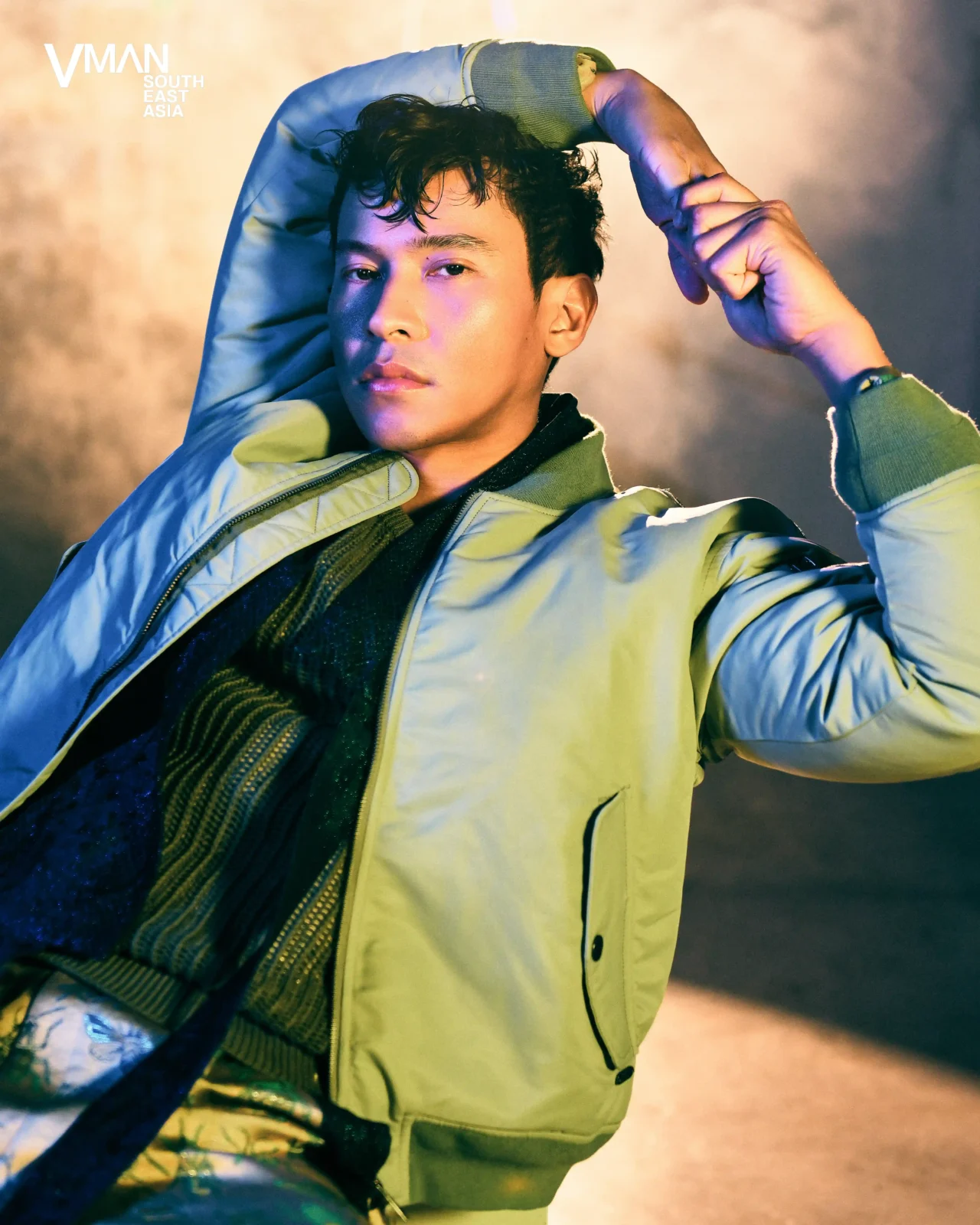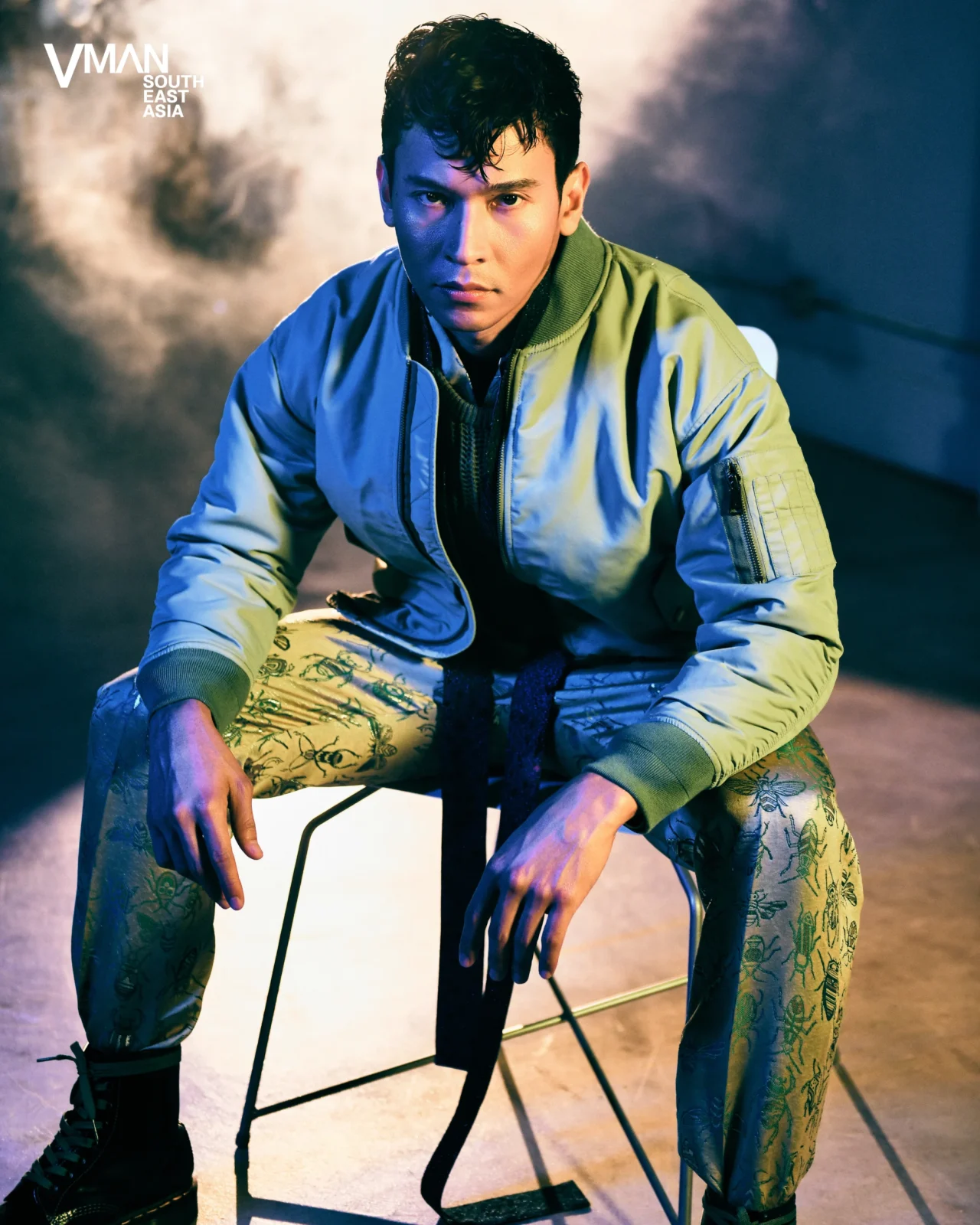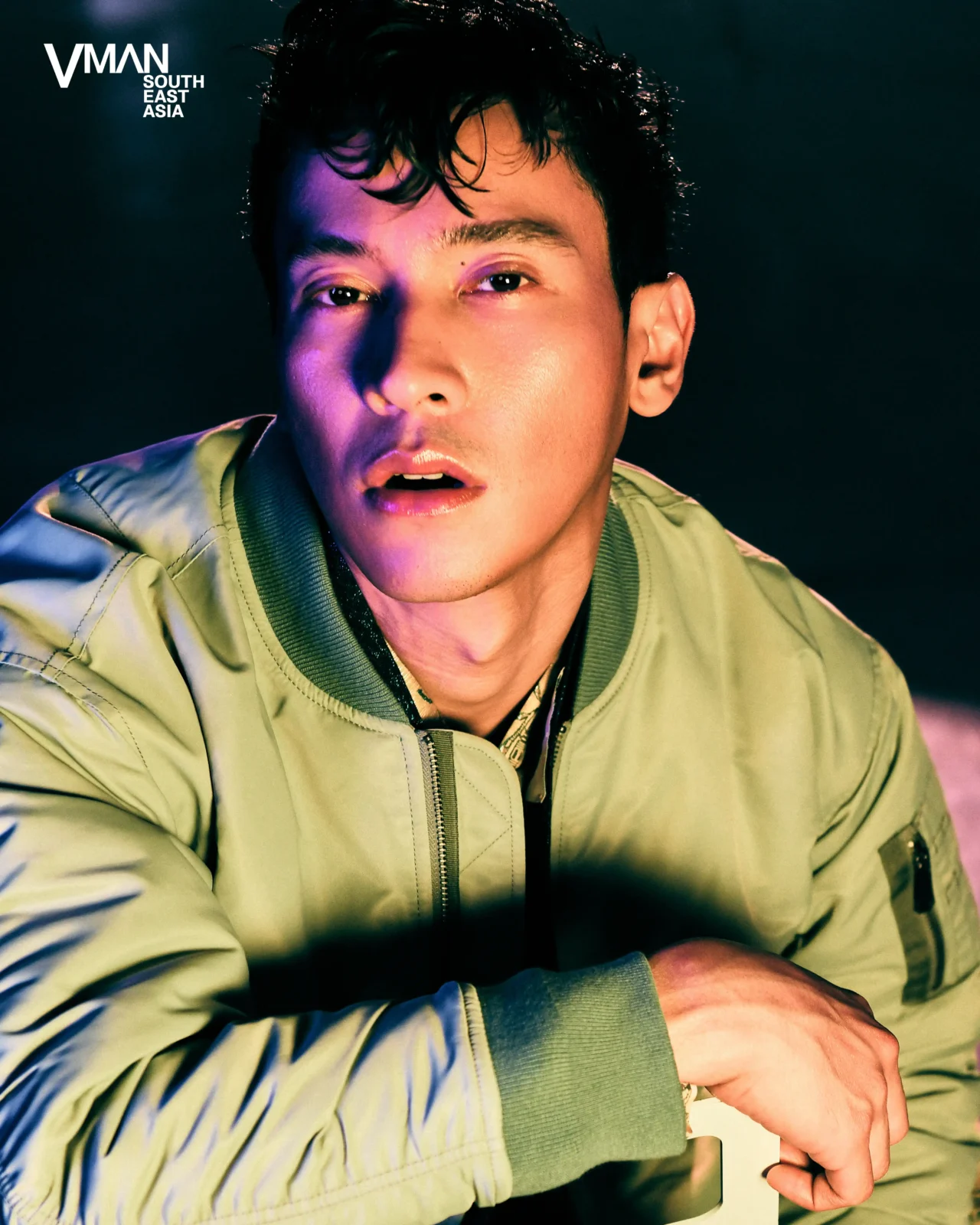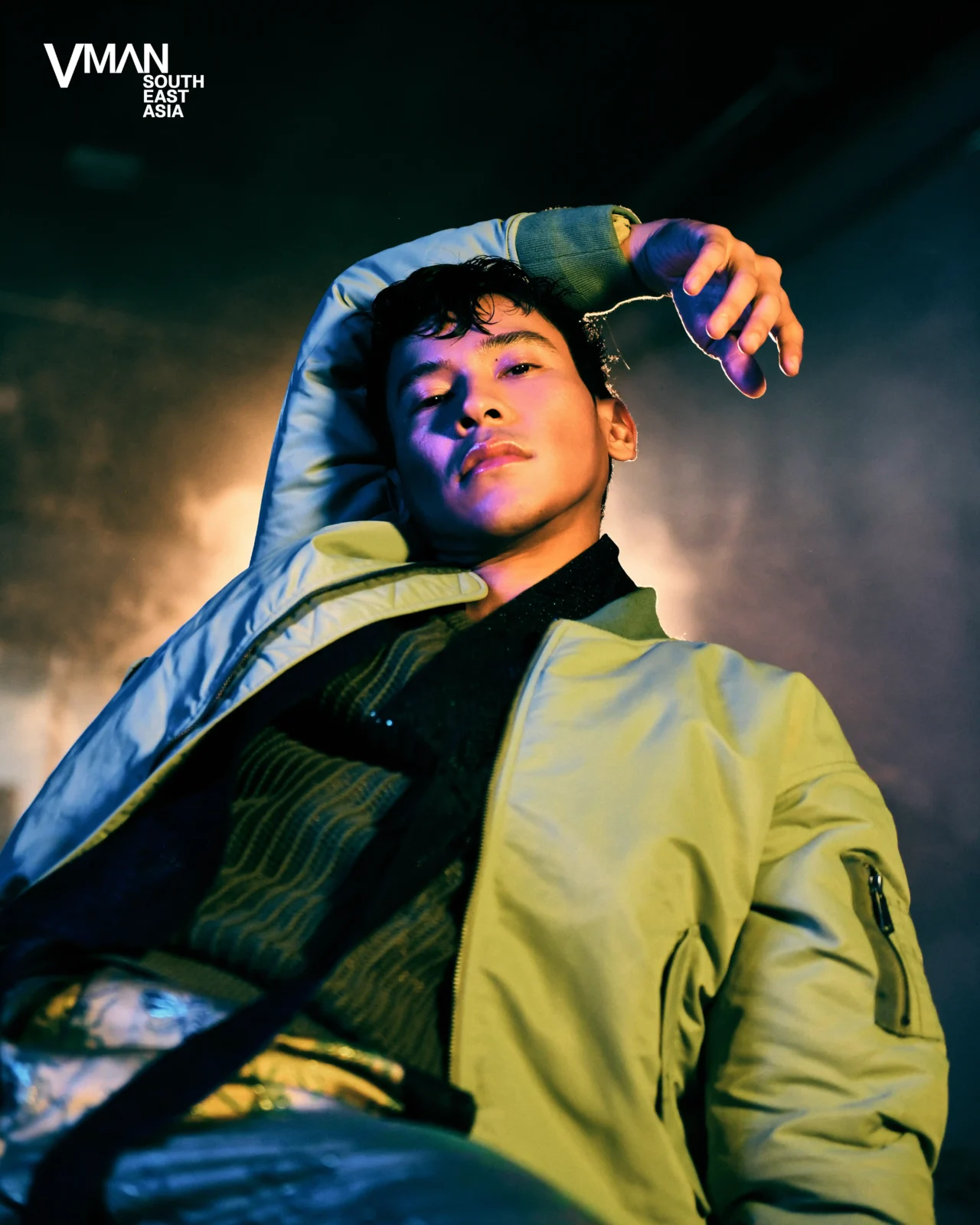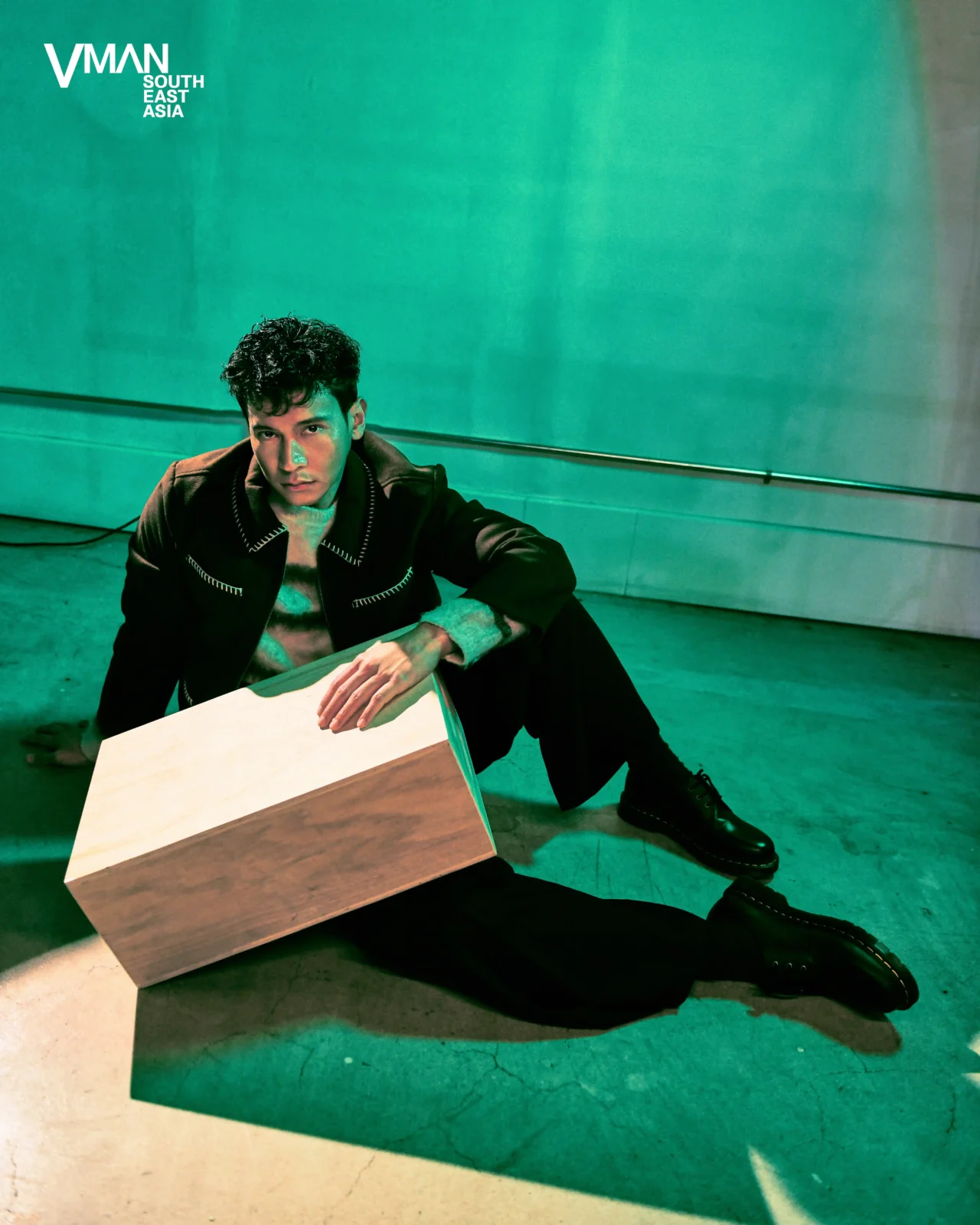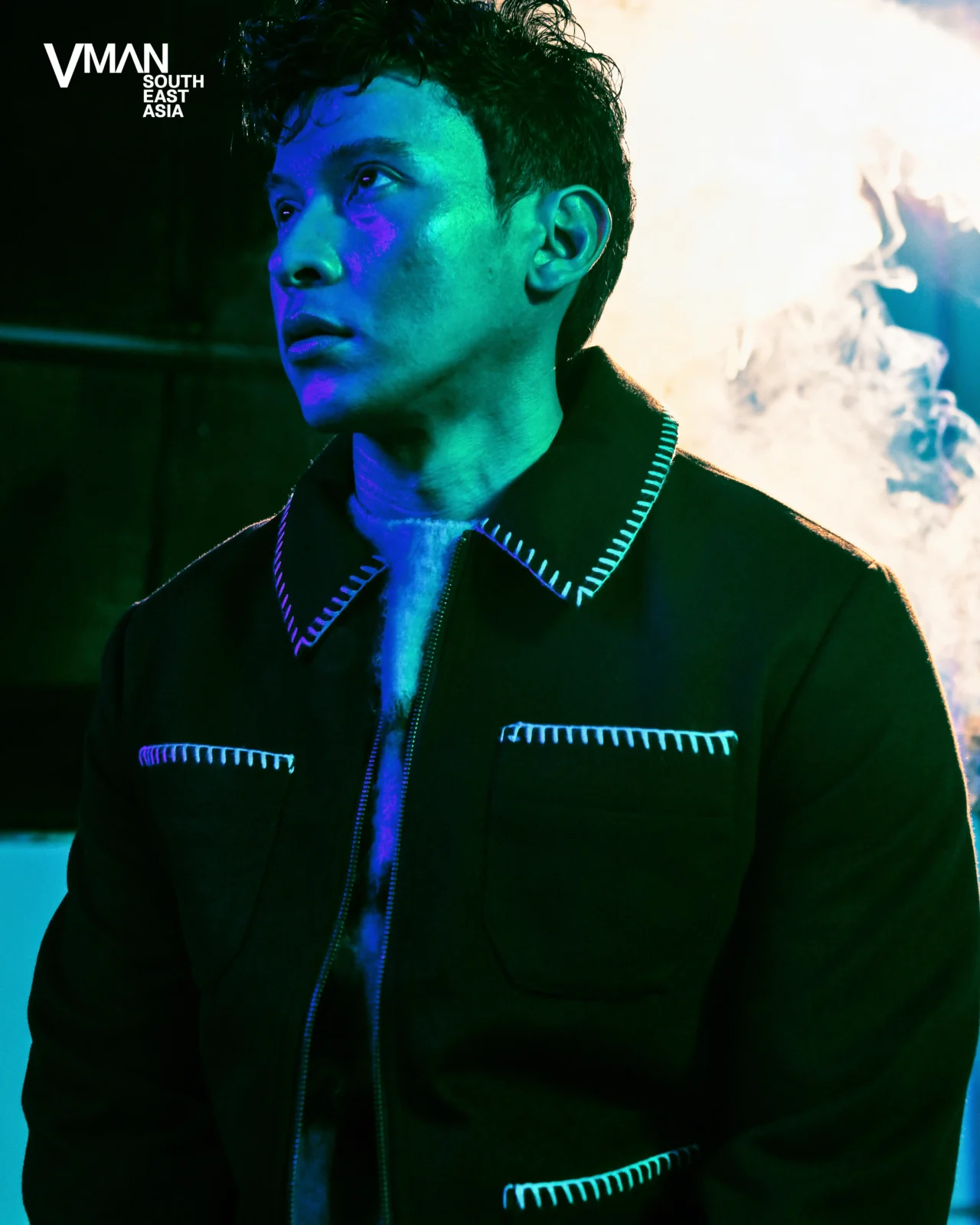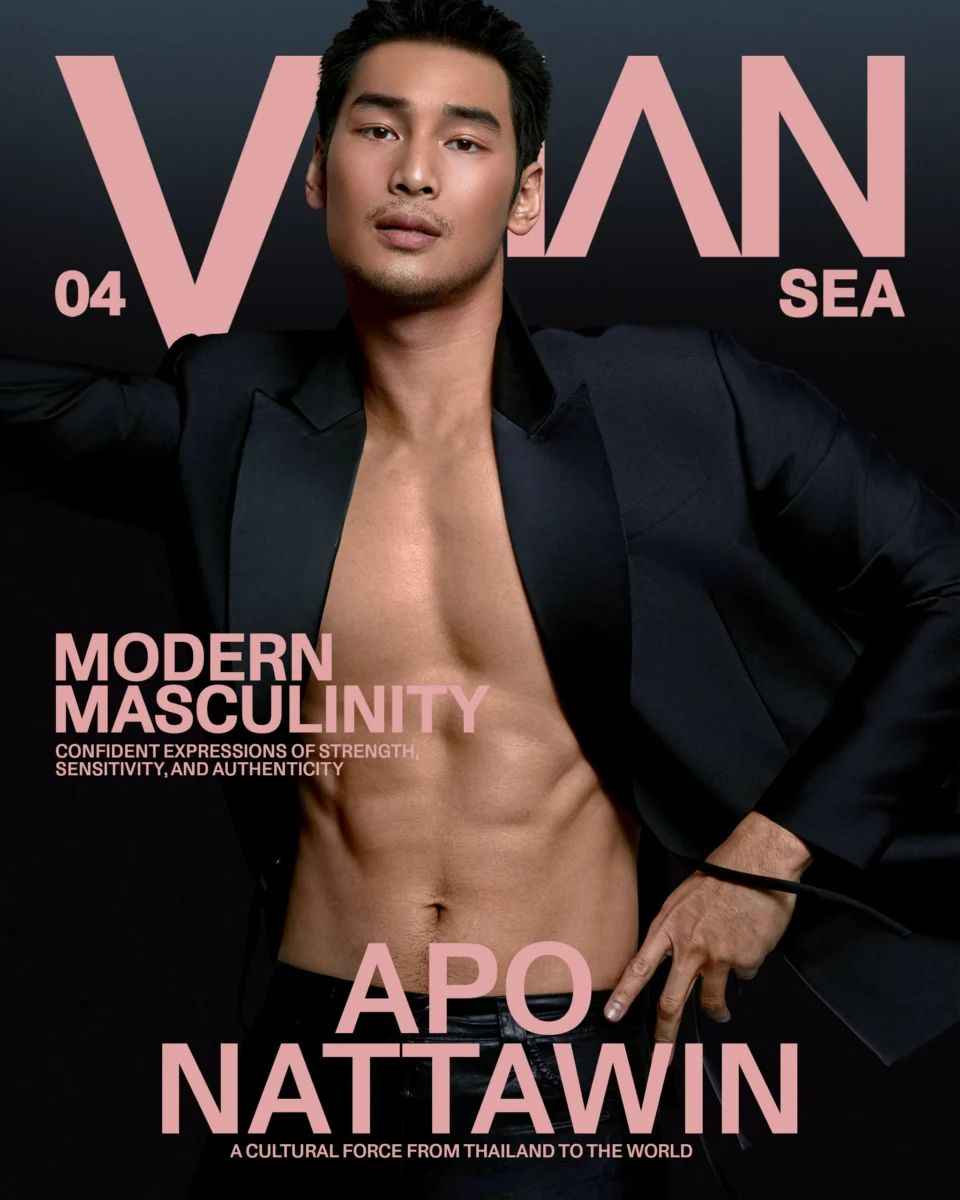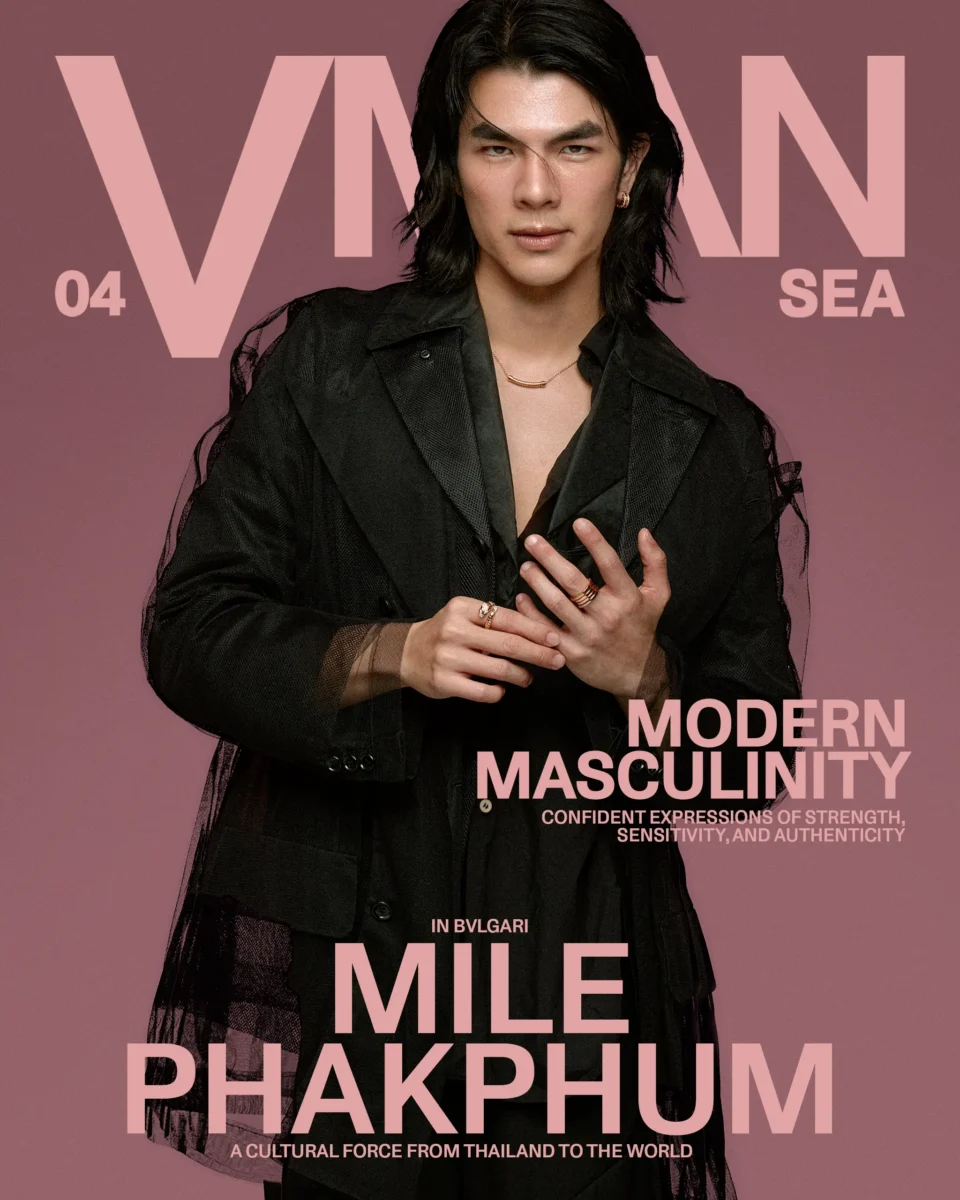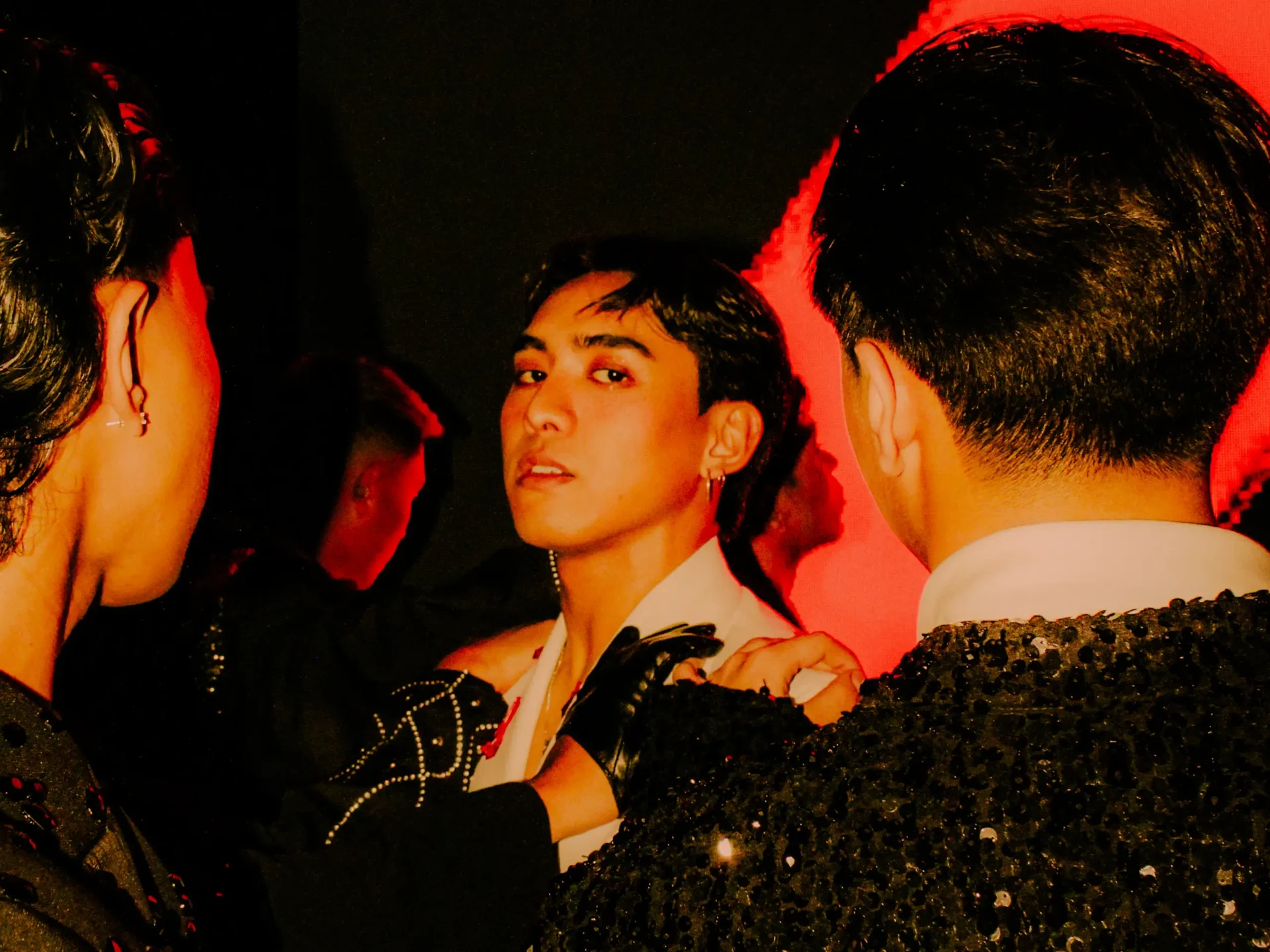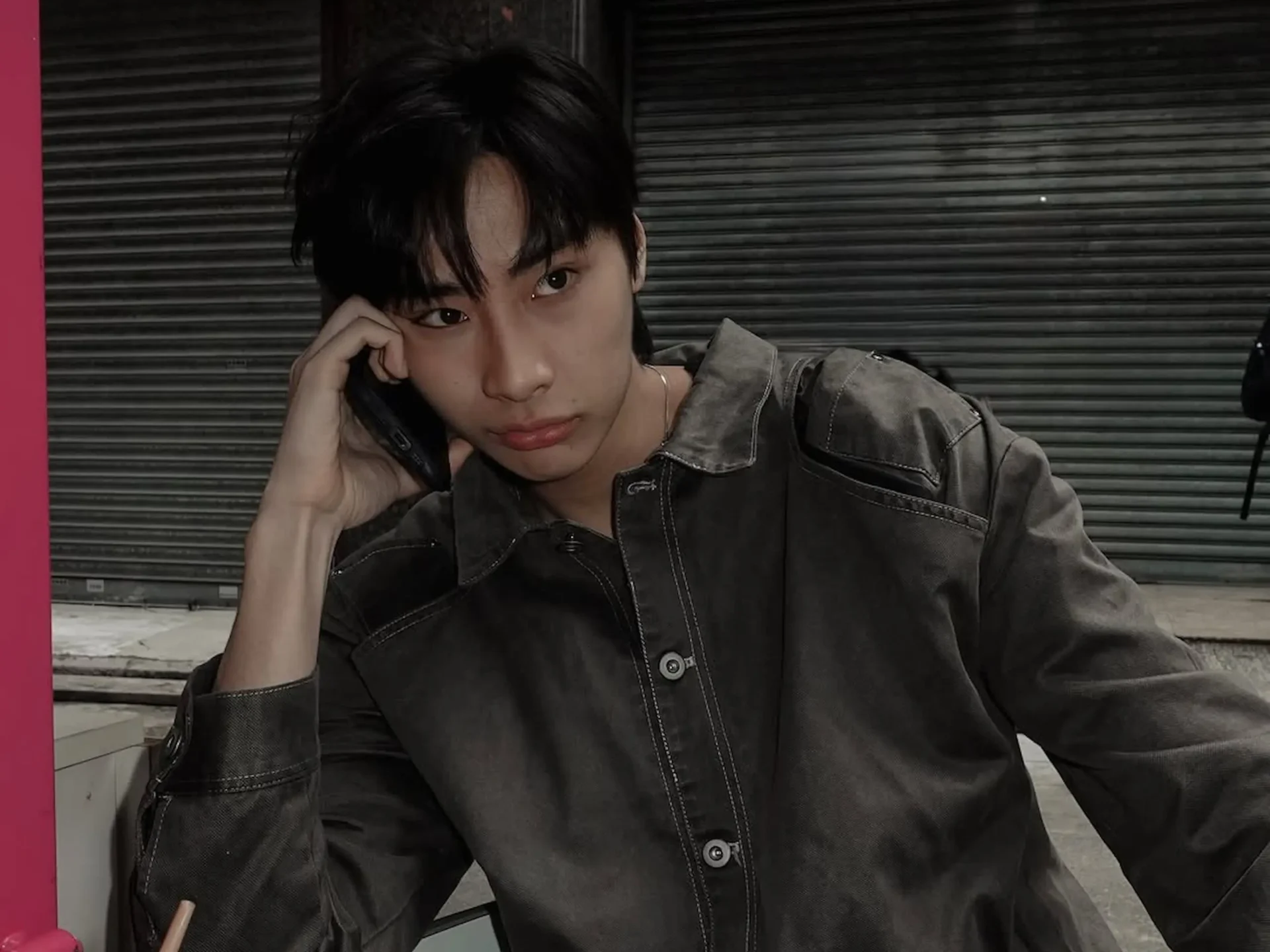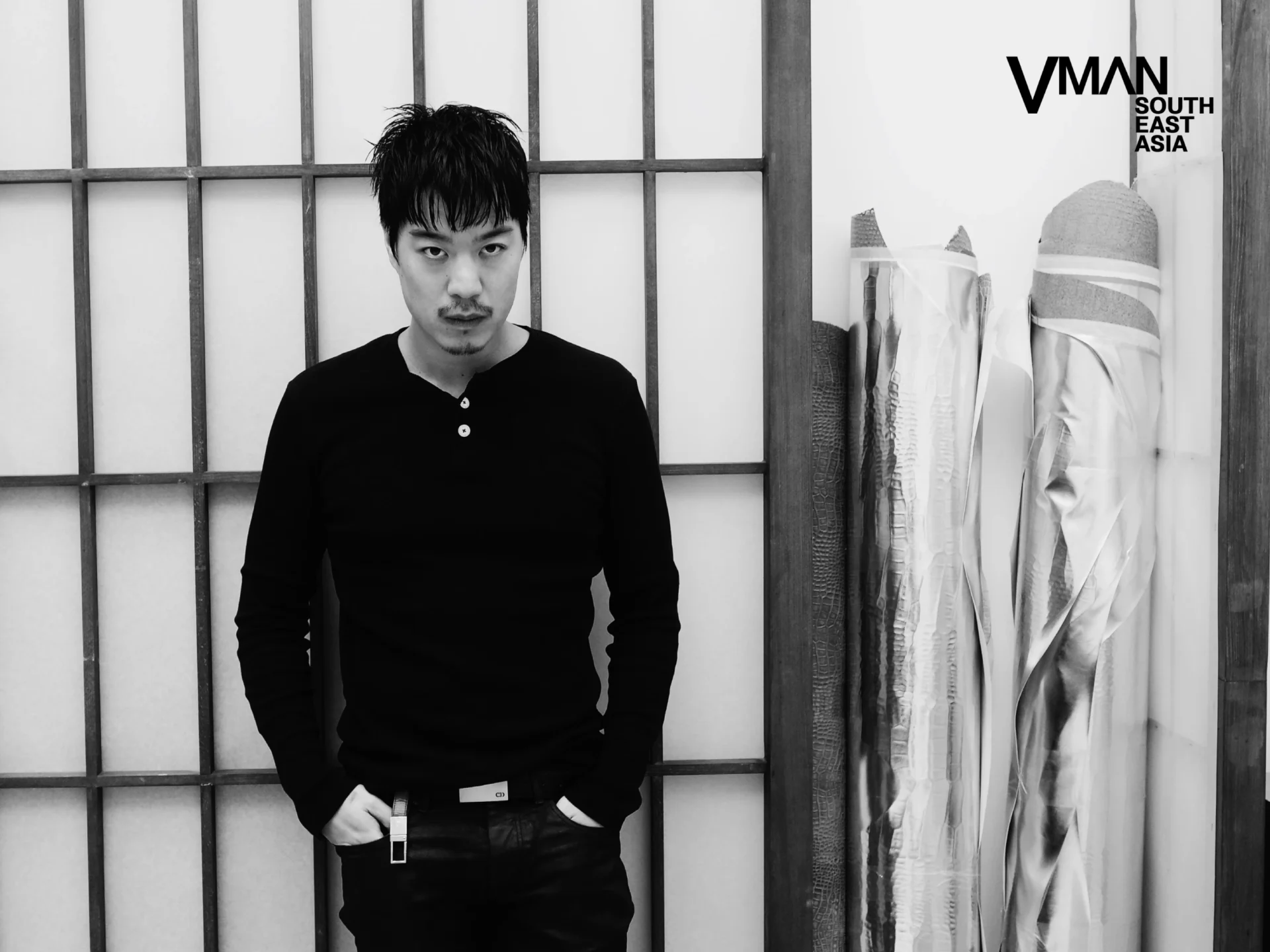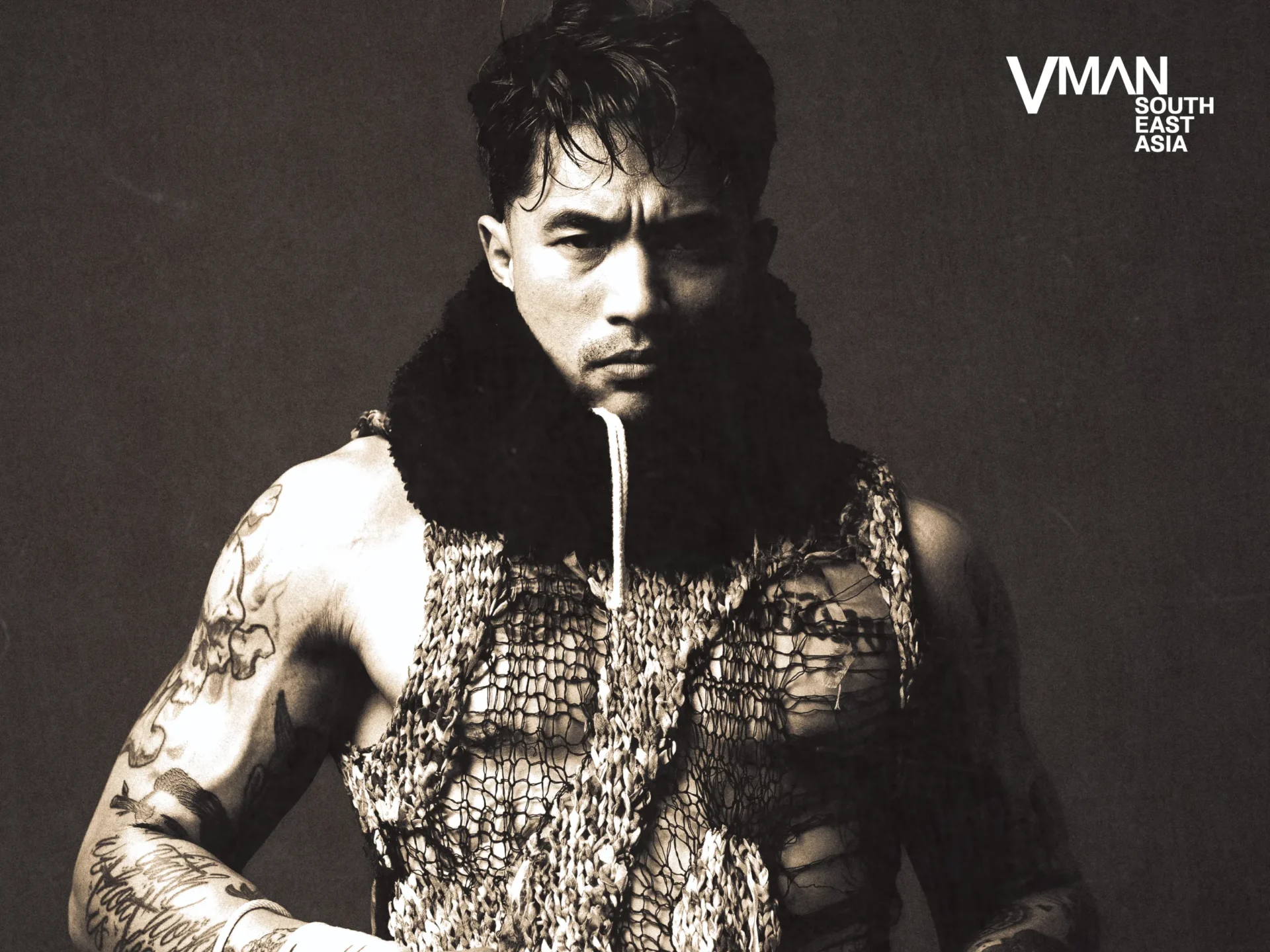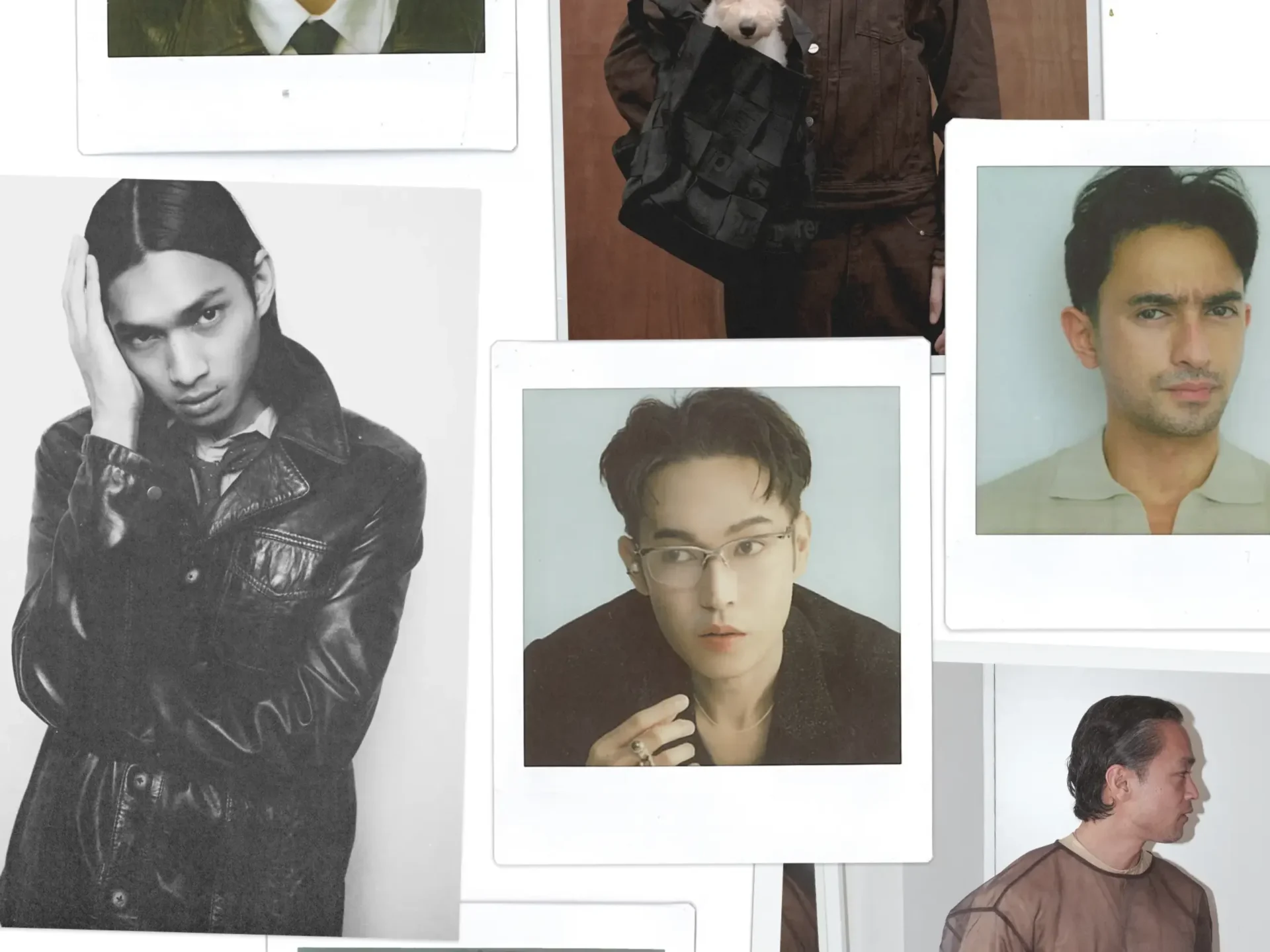Enchong Dee Is Letting Go—Of Dreams, Deadlines, and the Noise of Becoming
The Filipino multi-hyphenate learns to shed old skins, not with spectacle, but with the grace of a man finally moving at his own pace
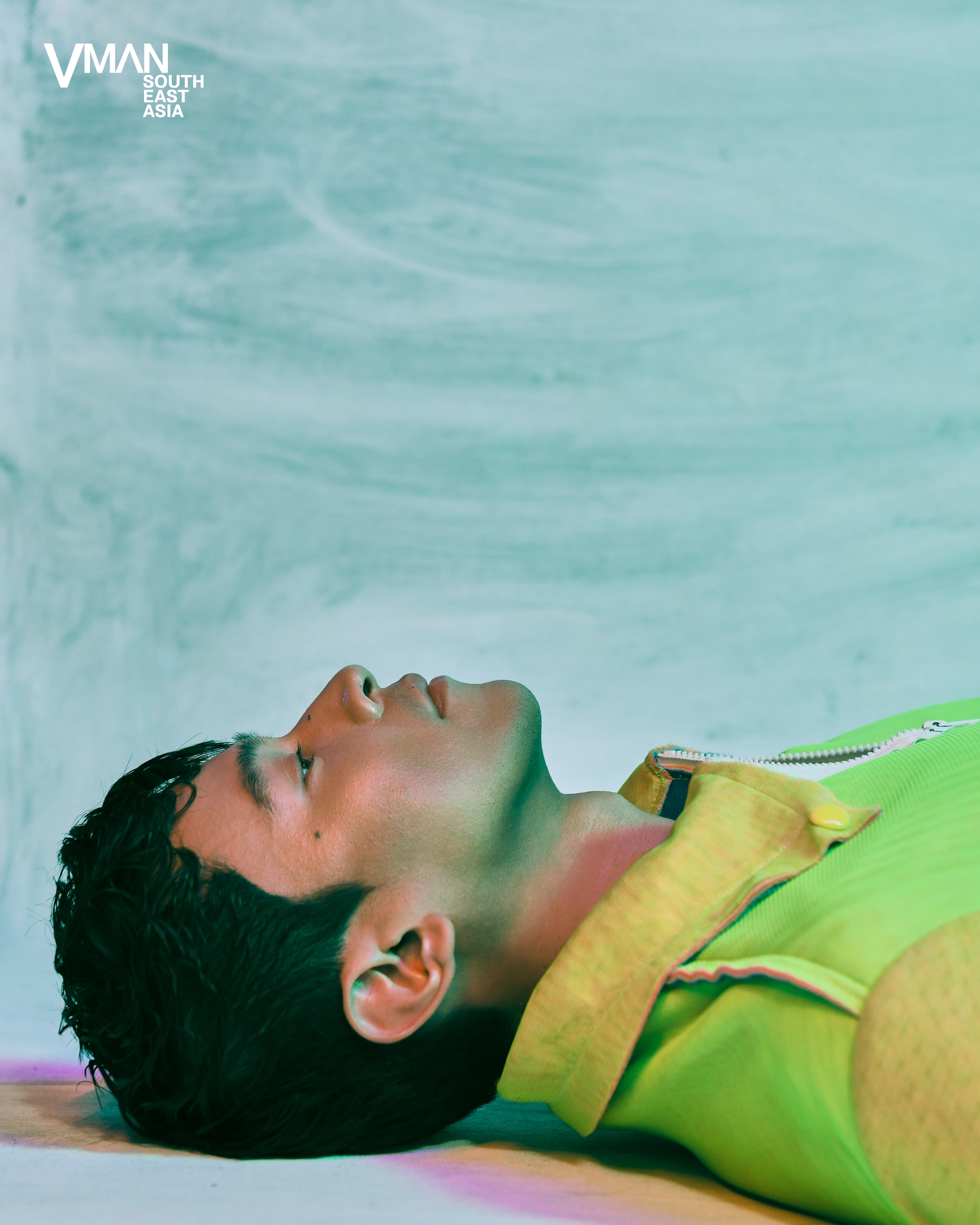
Reinvention can be almost imperceptible. It doesn’t parade itself on social media or hinge on spectacle. Instead, it lives in private decisions: in the clutter cleared out of a room, the dream laid to rest before it calcifies, or the morning walk that steadies the nervous system before the world demands anything of you. For Enchong Dee, actor, athlete, entrepreneur, and accidental philosopher, reinvention is not a seasonal project, but a lifelong commitment to molting.
“It’s like a lobster,” he tells me, sitting in a hotel, mid-preparation for a film shoot. “We shed parts of ourselves every year. Sometimes even more often than that.” He’s referencing his TED Talk, which recounted his own process of shedding identities, recalibrating dreams, and leaning into discomfort not as punishment, but as possibility.
That metaphor of molting and releasing the old shell so something softer and more honest can grow underneath, threads through everything Enchong says. But his version of transformation is quieter than most. It’s not about becoming someone new. It’s about becoming someone closer to the truth.
What we leave behind
Our conversation begins not with triumphs, but with grief. Enchong’s most formative metamorphosis, he admits, came not from success, but from sacrifice. At 16, after years of disciplined training and national swimming recognition, he chose to walk away from his Olympic dream in favor of education.
“One of the hardest decisions,” he says, “was choosing to stay in [the entertainment industry] here in the Philippines over studying at the University of Denver. That period was painful.”
The move was less about rejecting one life than stepping toward a different version of ambition. It was, as he says, “a bold, almost rebellious move”, rebellious not because it defied expectation, but because it honored his own internal compass. What he lost in linear progress, he gained in depth.
That pattern of letting go in order to grow repeats throughout his life. “There are things I want to let go of that are still a work in progress,” he tells me. “Some are easier to release, so you tackle those first.” Lately, that work has taken on physical form. Material things. “I used to hoard stuff,” he admits. “Now, I’m learning to clear out anything that feels like clutter. It frees up mental space.”
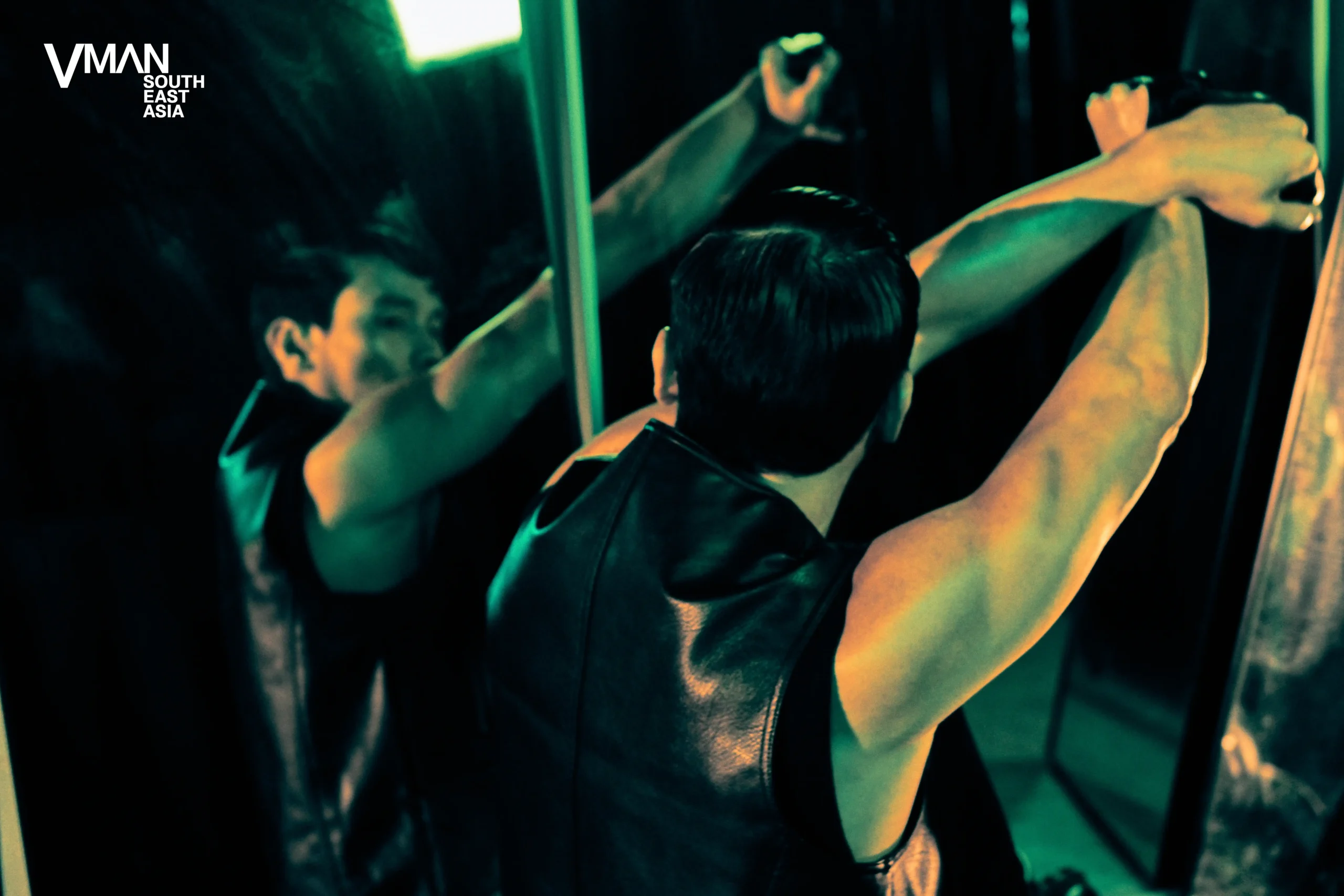
The crisis that wasn’t
At a certain point, the relentless multitasking of his twenties, swimming, schooling, acting, hosting, producing, began to reveal its cracks. “There was a point when I asked myself: Who is Enchong, really?” he says. It wasn’t burnout, exactly. It was something more insidious: an accumulation of unchecked momentum.
“I explored a lot of things without fully asking myself what I wanted. Eventually, I realized it wasn’t a crisis. It was about focus.”
In the modern lexicon, we often mistake restlessness for transformation. But what Enchong began to seek was stillness. And from that stillness emerged clarity.
“Now, I can say with more certainty: I want to focus on making films and acting. That’s my center. Everything else follows.”
Anchors in the drift
When I ask what grounds him, when the future feels vague or the path uncertain, he doesn’t invoke abstract mantras. Instead, he returns to his circle of trust. “There’s no one magic ingredient,” he says. “But I’ve been really lucky with my support system. My parents are always there for me. They don’t give unsolicited advice, but I always welcome what they have to say.”
His team, too, holds him steady. “They’ve helped hold me together during times I felt like giving up.” But ultimately, it’s the small circle that matters most. “I’ve come to realize I don’t need a huge group of people. Just a few real ones I can listen to and learn from.” It’s a refreshing confession in a culture saturated with performative community and endless networking. Enchong’s circle, he makes clear, is built not on visibility, but on truth.
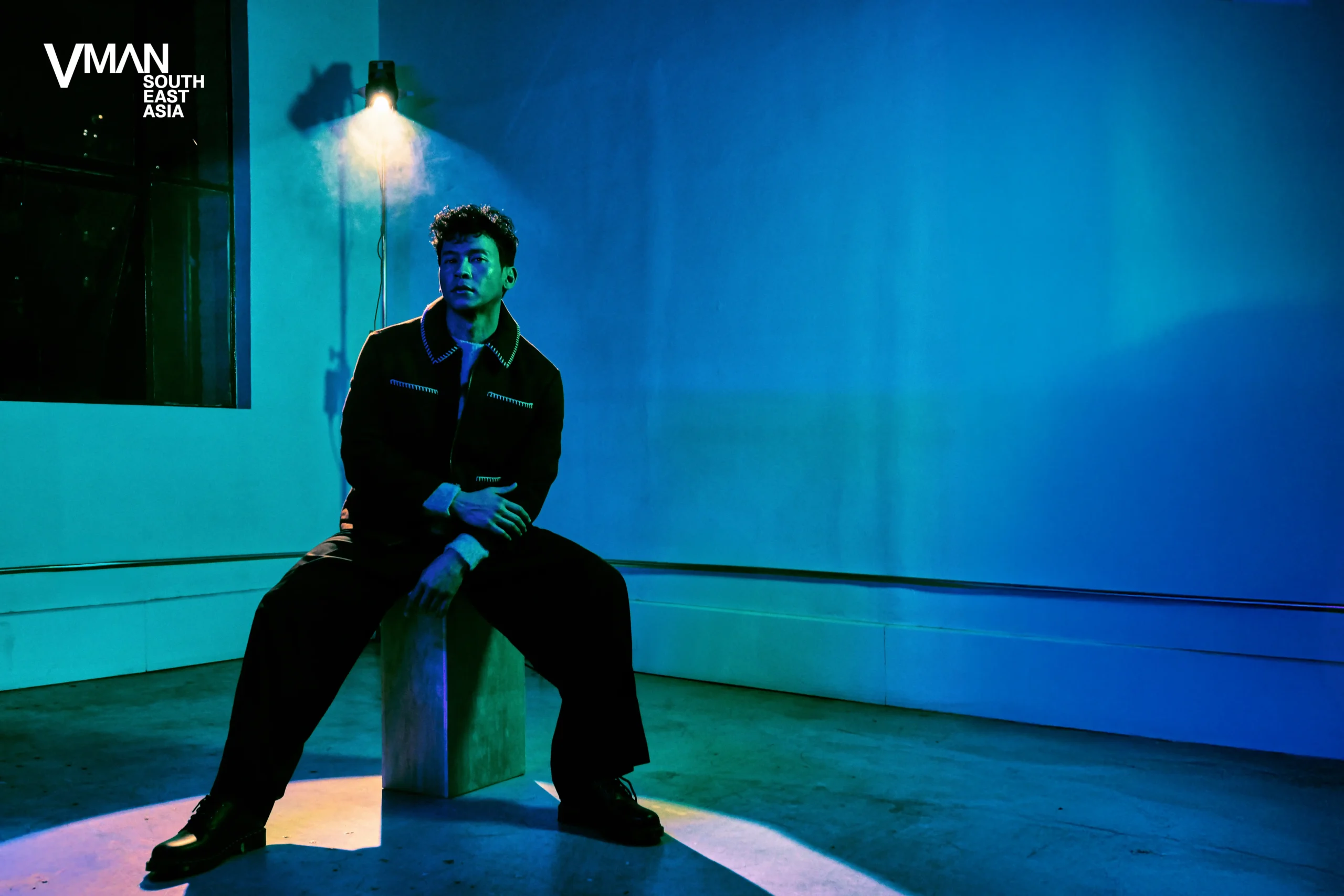
Entrepreneurship as expansion, not escape
When work in entertainment slowed down, whether due to pandemic disruptions or industry shifts, Enchong didn’t spiral. He pivoted strategically. “I felt excited about it,” he says of moving into entrepreneurship. “I saw it as an opportunity to leverage the influence I’d built in [the entertainment industry] to offer something unique to business partners.”
He approached business like he approached sport: discipline first, but with room for curiosity. “Win or lose, I looked at everything as an investment in learning. Even if you don’t get your money back, you’ve gained experience.”
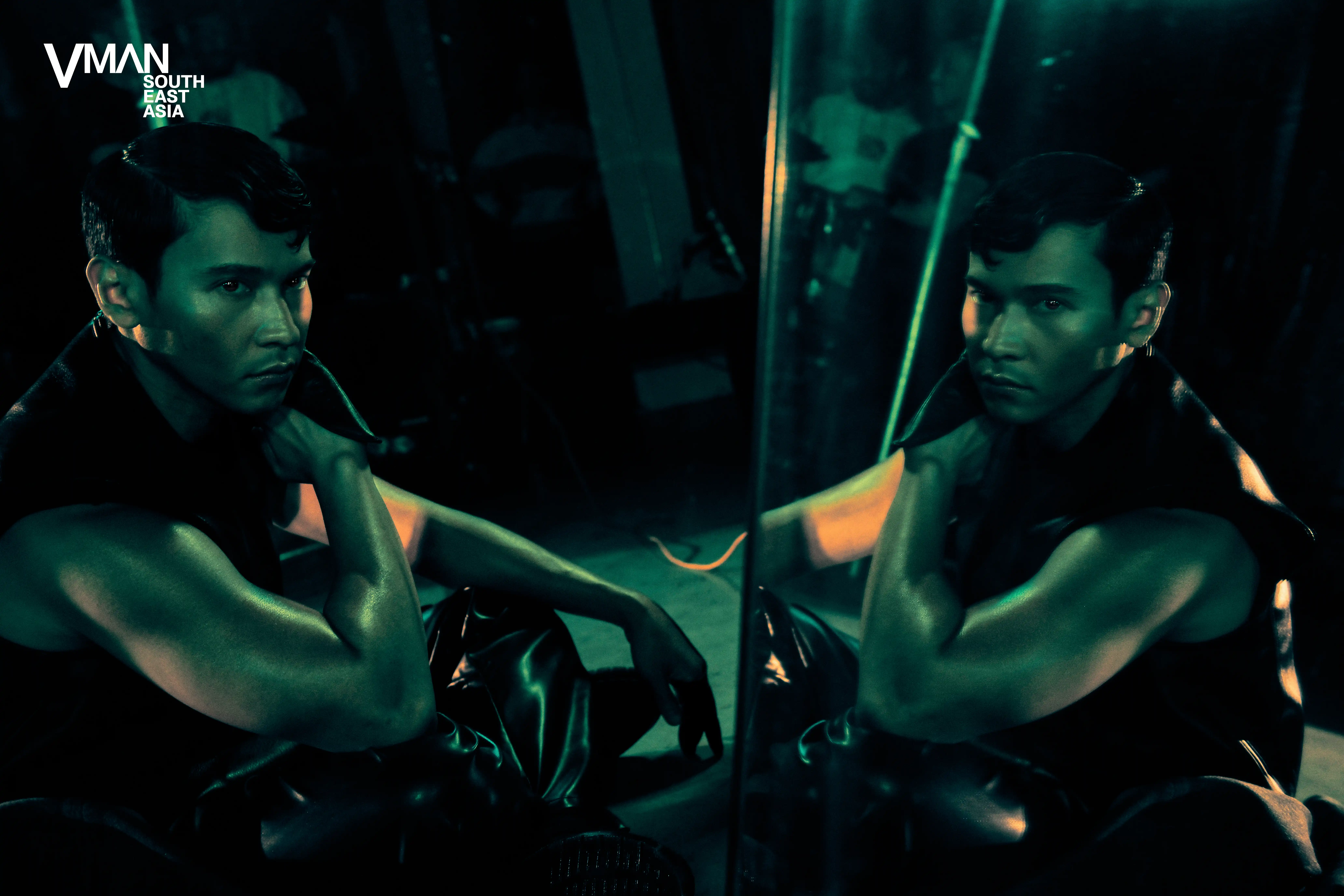
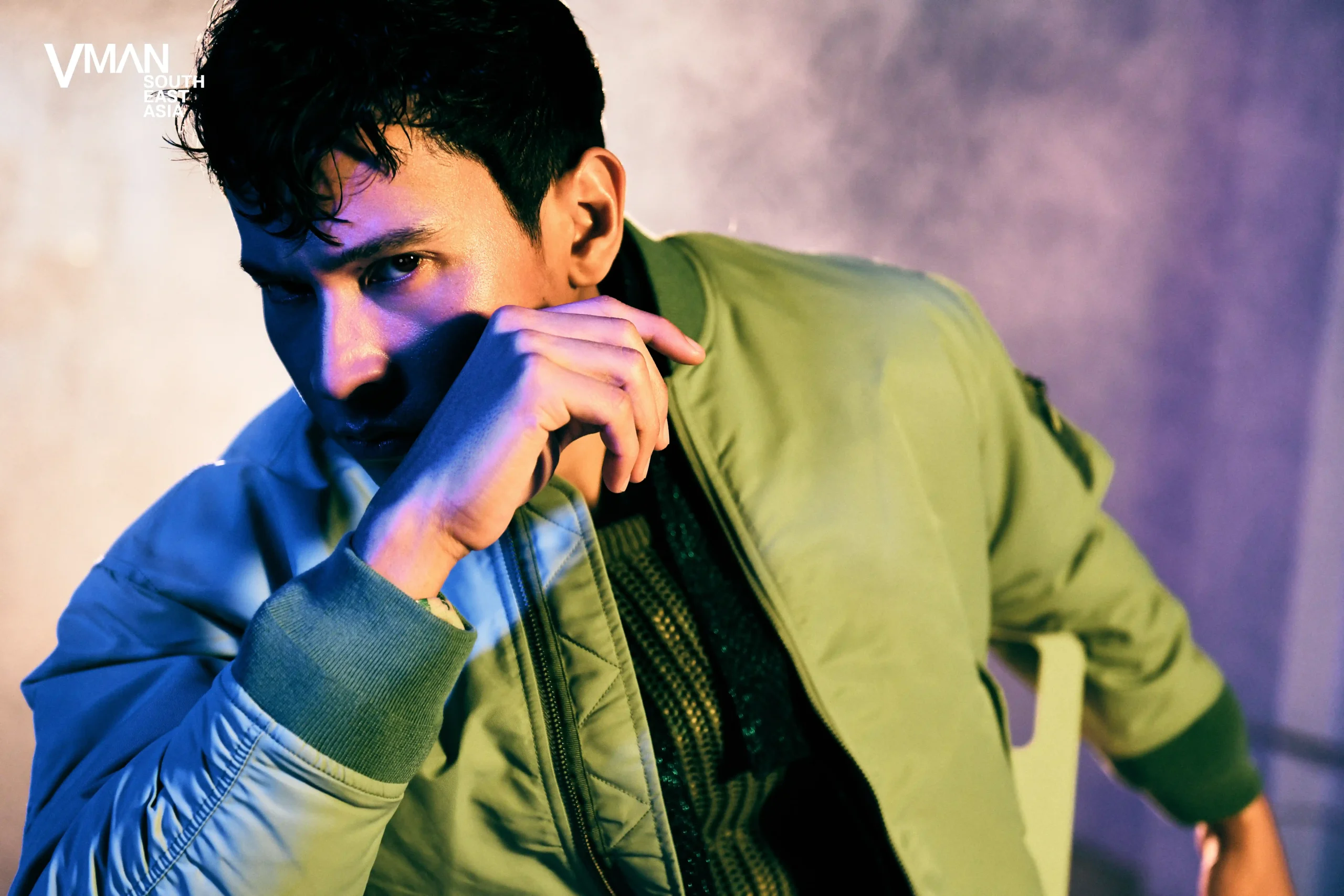
This framing, experience over outcome, feels increasingly rare in an era of hustle culture. But it’s exactly the philosophy that makes reinvention sustainable. Because it resists the need for every move to be a masterstroke. It allows for experimentation, even failure.
The long practice of self-care
In what might be the most unexpected turn of his career, Enchong has found viral resonance on TikTok, not through calculated branding, but through digital domesticity. He shows his meals. His skincare. His modest outfits. He pokes fun at himself.
“I don’t wear the most expensive or the trendiest outfits,” he shrugs. “But I wear what feels right for me.” And people respond not to polish, but to presence. “Even the viral stuff, the inhaler, the powder buds, now the collagen jelly that looks like cat food, it all just happened. It still amazes me.” There is something deeply millennial, even post-pandemic, in this: the pivot from performative aspiration to relaxed authenticity. Enchong isn’t selling a better life. He’s documenting a real one.
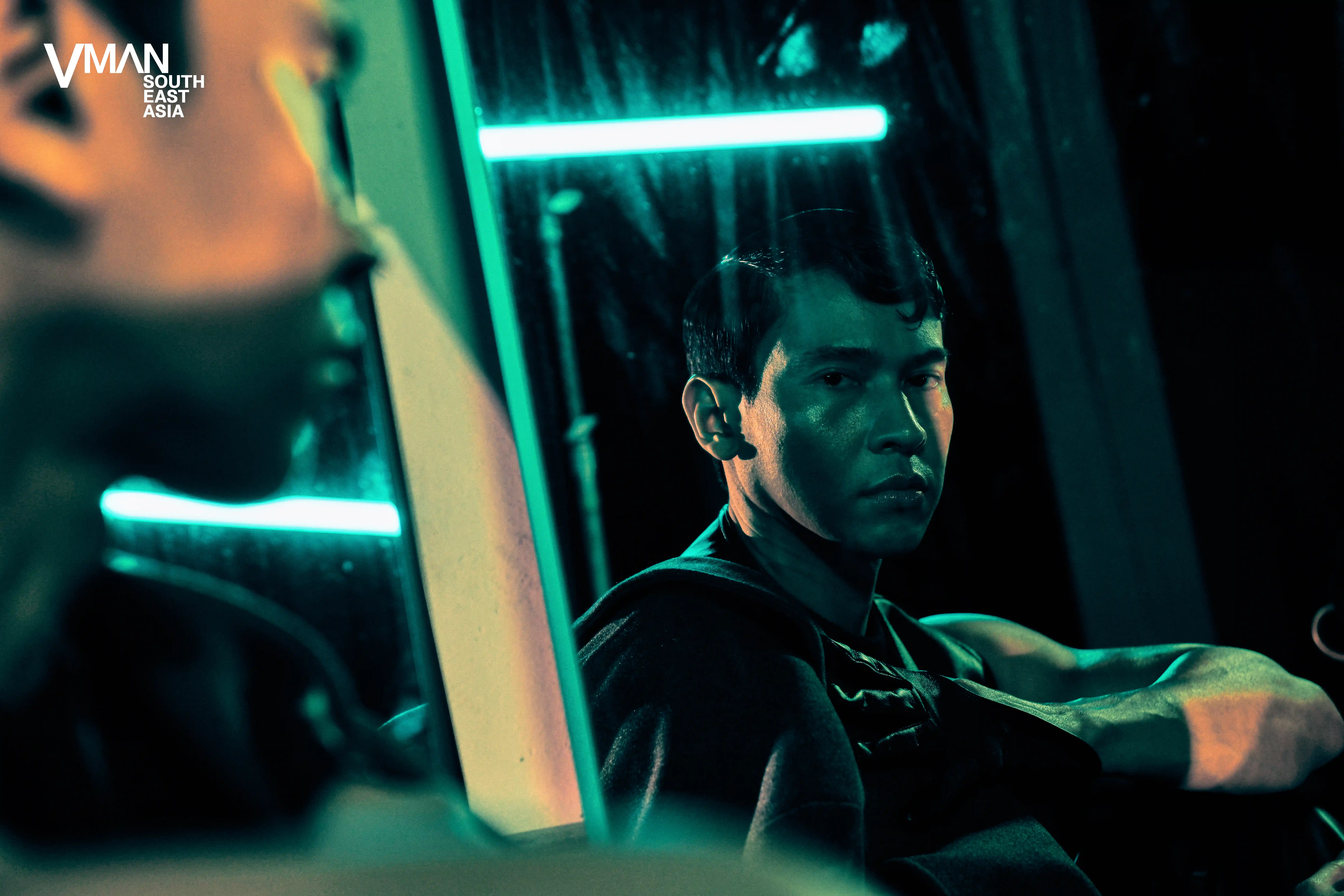
When we talk about self-care, he doesn’t start with serums or supplements. He starts with sweat. “To this day,” he says, “I feel incomplete if I don’t sweat.” Whether it’s walking 20,000 steps, stretching in a hotel room, or squeezing in a sauna session, movement remains his baseline.
“Self-care is about showing up as the healthiest version of yourself,” he says. “The internet just gave us a new vocabulary for what I’ve been doing all along.” He’s thoughtful about grooming, too, not for vanity, but for composure. “I’ve realized how much of a difference it makes when your hair is fixed. It instantly helps you look more presentable, no matter what you’re wearing.”
And, yes, the inhaler remains a personal favorite. “It’s like, when you inhale, your patience grows just a little bit longer, especially in this heat.”
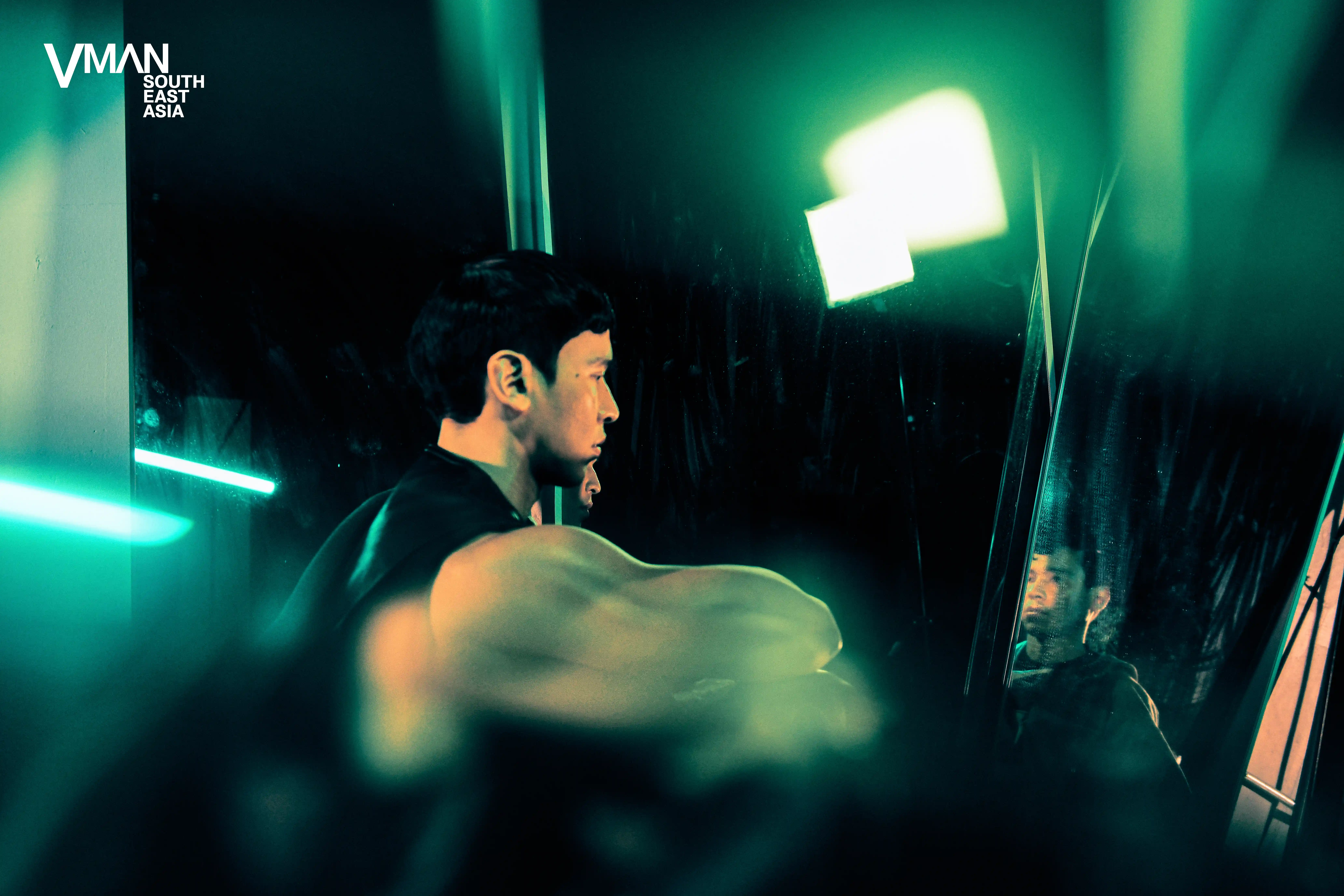
The art of letting go
Toward the end of our conversation, I ask the question that tempts clichés: What would you ask your future self?
He pauses. “Has life become easier? Or more complicated?” Then he adds, “But I think my future self would say, Don’t preempt anything. Just let life unfold.” It’s a beautiful restraint, this refusal to impose a storyline. And in many ways, it defines his entire philosophy. Letting go not just of old identities, but of the pressure to narrativize everything. To rush the arc. To make sense too soon.
So I ask, finally: What version of yourself are you willing to let go of next? “Constantly,” he says. “Some things are still a work in progress.” And that’s the most honest version of self-care there is: not the pursuit of perfection, but the willingness to begin again.
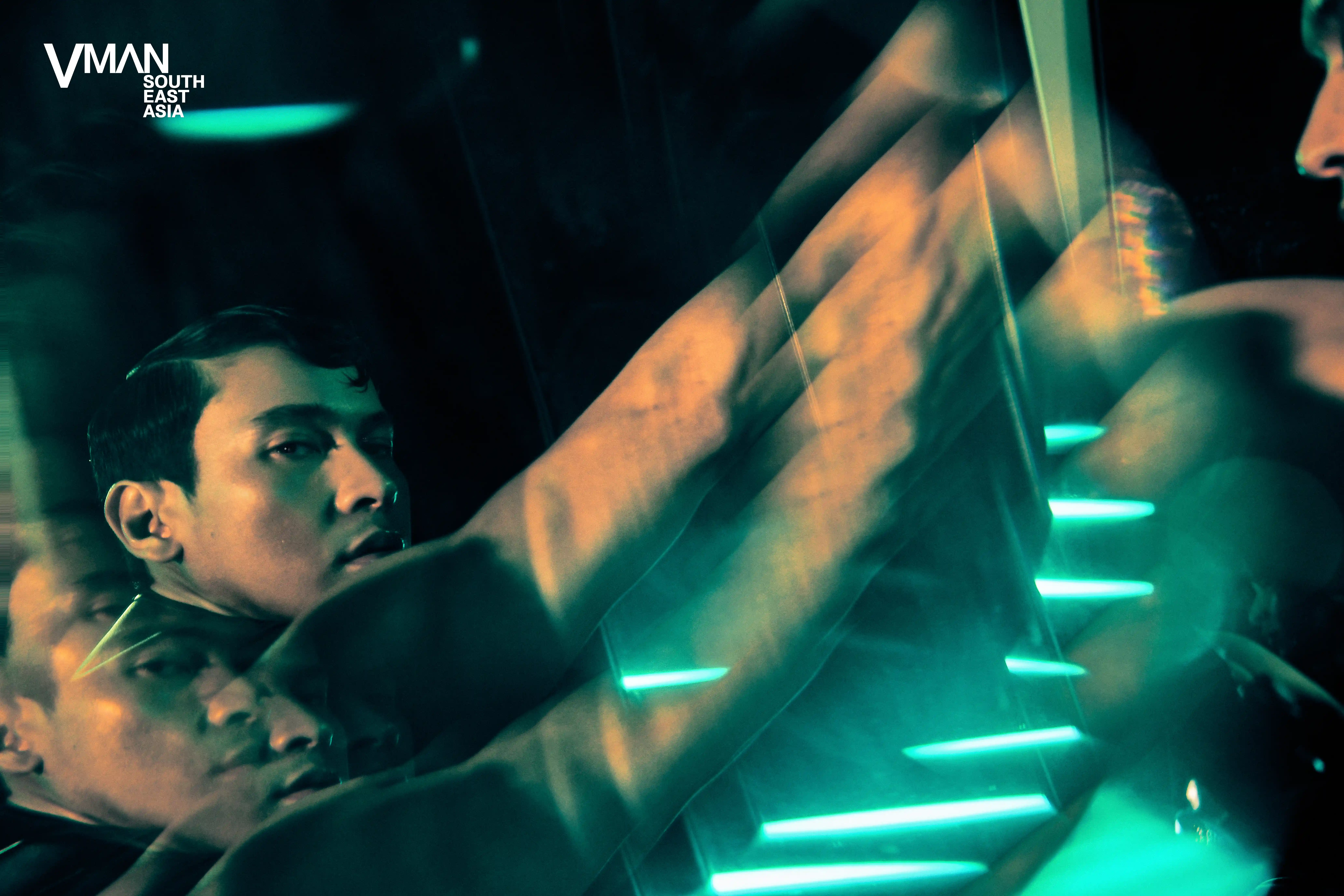
Photography Irvin Rivera
Fashion Andrew Philip Nguyen and Juliet Vo
Grooming Bong Buan
Production AC de Quina
Retouching Phil Limprasertwong
Photography assistant Andrew Phan

